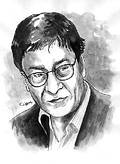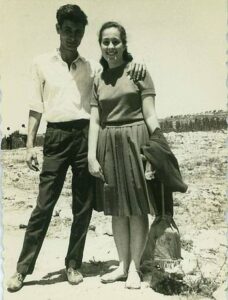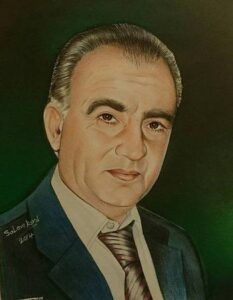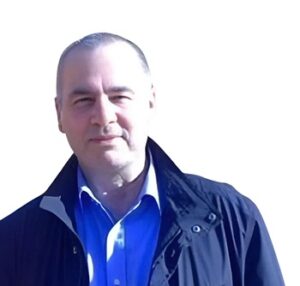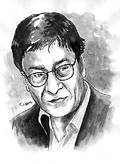 في الخامس من تشرين الأول/أكتوبر 2008المهرجان الأدبي العالمي في برلين يوجه هذا النداء لإقامة أمسيات شعرية عالمية تقدم فيها قصائد الشاعر محمود درويش في الخامس من تشرين الثاني/ أكتوبر 2008. ويتم من خلالها تكريم الشاعر وأعماله وسعيه الدؤؤب للتوصل إلى تعايش سلمي وعادل بين العرب والإسرائيليين. هذا النداء نوجهه إلى المؤسسات الثقافية، والمحطات الإذاعية، والمدارس، والمسارح وكل المهتمين في جميع أرجاء العالم.
في الخامس من تشرين الأول/أكتوبر 2008المهرجان الأدبي العالمي في برلين يوجه هذا النداء لإقامة أمسيات شعرية عالمية تقدم فيها قصائد الشاعر محمود درويش في الخامس من تشرين الثاني/ أكتوبر 2008. ويتم من خلالها تكريم الشاعر وأعماله وسعيه الدؤؤب للتوصل إلى تعايش سلمي وعادل بين العرب والإسرائيليين. هذا النداء نوجهه إلى المؤسسات الثقافية، والمحطات الإذاعية، والمدارس، والمسارح وكل المهتمين في جميع أرجاء العالم.كان محمود درويش من أكثر الشعراء العرب المعاصرين شعبية، وواحداً من أكبر الشعراء في الأدب العالمي. أمسياته الشعرية، كانت تجذب إليها الآلاف من محبي الشعر. دواوينه نشرت بمئات الآلاف من النسخ. أعماله ترجمت إلى أكثر من ثلاثين لغة.
قصائده تغنى كأغنيات شعبية. وكثير من أبيات شعره تحولت إلى أمثال.
يغرف درويش من تقاليد الشعر العربي القديم ومنجزات الحداثة على حد سواء، كما يغرف من لغة ونصوص القرآن والكتاب المقدس . وقد حاول درويش التعبير في قصائده كما لم يفعل أحد سواه من الشعراء عن الحلم بسلام كبير وحقيقي وعادل بين العرب والإسرائيليين، سلام يساهم في التوصل إلى حوار بين صوتين وبين رؤيتين، دون أن تفرض إحداهما بالقوة نفسها على الأخرى.
كان الشاعر في الشعر العربي القديم صوتاً لأمته. ورغم أن درويش تحرر منذ مطلع التسعينات من حصره في لعب هذا الدور، إلا أن كثيرين من قرائه مازالوا يعتبرونه سفير فلسطين الشعري إلى العالم.
ولد محمود درويش عام 1941 في قرية البروة بالقرب من عكا في فلسطين. هرب عام 1948 إلى لبنان وعاد إلى دولة إسرائيل بعد تأسيسها. عمل في حيفا محرراً في عدد من المجلات السياسية والثقافية. بعد اعتقاله مرات عديدة ترك إسرائيل وذهب عام 1970 إلى المنفى. أقام في موسكو والقاهرة وبيروت وتونس وباريس، وعاش سنواته الأخيرة بين عمان ورام الله. أنتخب عام 1987 عضواً في المجلس المركزي لمنظمة التحرير الفلسطينية، وكان أحد من صاغوا إعلان تأسيس دولة فلسطين. لكنه انسحب من العضوية عام 1993 احتجاجاً على توقيع اتفاقيات اوسلو. منحت له جوائز عالمية عدة جائزة لينين للحرية الثقافية (2001) وجائزة ايريش ماريا ريمارك للسلام (2003).
توفي الشاعر في التاسع من آب/ أغسطس على أثر عملية في القلب.
ودفن في رام الله في الضفة الغربية بتشييع حكومي وشعبي.
للاتصال والتنسيق :
worldwidereading@literaturfestival.com
قصائده تغنى كأغنيات شعبية. وكثير من أبيات شعره تحولت إلى أمثال.
يغرف درويش من تقاليد الشعر العربي القديم ومنجزات الحداثة على حد سواء، كما يغرف من لغة ونصوص القرآن والكتاب المقدس . وقد حاول درويش التعبير في قصائده كما لم يفعل أحد سواه من الشعراء عن الحلم بسلام كبير وحقيقي وعادل بين العرب والإسرائيليين، سلام يساهم في التوصل إلى حوار بين صوتين وبين رؤيتين، دون أن تفرض إحداهما بالقوة نفسها على الأخرى.
كان الشاعر في الشعر العربي القديم صوتاً لأمته. ورغم أن درويش تحرر منذ مطلع التسعينات من حصره في لعب هذا الدور، إلا أن كثيرين من قرائه مازالوا يعتبرونه سفير فلسطين الشعري إلى العالم.
ولد محمود درويش عام 1941 في قرية البروة بالقرب من عكا في فلسطين. هرب عام 1948 إلى لبنان وعاد إلى دولة إسرائيل بعد تأسيسها. عمل في حيفا محرراً في عدد من المجلات السياسية والثقافية. بعد اعتقاله مرات عديدة ترك إسرائيل وذهب عام 1970 إلى المنفى. أقام في موسكو والقاهرة وبيروت وتونس وباريس، وعاش سنواته الأخيرة بين عمان ورام الله. أنتخب عام 1987 عضواً في المجلس المركزي لمنظمة التحرير الفلسطينية، وكان أحد من صاغوا إعلان تأسيس دولة فلسطين. لكنه انسحب من العضوية عام 1993 احتجاجاً على توقيع اتفاقيات اوسلو. منحت له جوائز عالمية عدة جائزة لينين للحرية الثقافية (2001) وجائزة ايريش ماريا ريمارك للسلام (2003).
توفي الشاعر في التاسع من آب/ أغسطس على أثر عملية في القلب.
ودفن في رام الله في الضفة الغربية بتشييع حكومي وشعبي.
للاتصال والتنسيق :
worldwidereading@literaturfestival.com
****
Dear colleagues, dear friends,
On August 11, the poet Breyten Breytenbach wrote us a letter: “La mort de Mahmoud”. Since we were in preparation of our next festival, which takes place from September 24 to October 5, 2008, I thought that we should read some of Mahmoud””s poems. And indeed we (more than 20 actors, translators and friends of Mahmoud) will do so at the festival””s closing night, October 5th.
Furthermore, we wrote an appeal for a worldwide reading in memoriam Mahmoud Darwish on the same day (see below). The following poems will be read in Berlin on October 5th: “Oh my father”, “I am Yusuf”, “A lover from Palestine”, “Think of Others”, “We Travel Like All People”, “He is calm, and I am too”, “We love life” and others. I will send out a press release next Monday. Would you sign this appeal before that and also forward it to your friends?
Warmest regards
Uli Schreiber
PS: You””ll find the Arabic, Spanish and German translation of the appeal below, other translations will be provided within the next days. The program-flyer of our festival (september 24th – october 5th) you””ll find in the attachment.
On August 11, the poet Breyten Breytenbach wrote us a letter: “La mort de Mahmoud”. Since we were in preparation of our next festival, which takes place from September 24 to October 5, 2008, I thought that we should read some of Mahmoud””s poems. And indeed we (more than 20 actors, translators and friends of Mahmoud) will do so at the festival””s closing night, October 5th.
Furthermore, we wrote an appeal for a worldwide reading in memoriam Mahmoud Darwish on the same day (see below). The following poems will be read in Berlin on October 5th: “Oh my father”, “I am Yusuf”, “A lover from Palestine”, “Think of Others”, “We Travel Like All People”, “He is calm, and I am too”, “We love life” and others. I will send out a press release next Monday. Would you sign this appeal before that and also forward it to your friends?
Warmest regards
Uli Schreiber
PS: You””ll find the Arabic, Spanish and German translation of the appeal below, other translations will be provided within the next days. The program-flyer of our festival (september 24th – october 5th) you””ll find in the attachment.
Appeal
Worldwide reading in memory of Mahmoud Darwish on 5 October 2008
The Berlin International Literature Festival is appealing for a worldwide reading of Mahmoud Darwish’s poetry on 5 October 2008. The activities accompanying this event are designed not only to honour the poet’s body of work but also his commitment to promoting peaceful and fair coexistence between Arabs and Israelis. This appeal is directed at cultural institutions, radio stations, schools, universities, theatres and all other Darwish enthusiasts the world over.
Mahmoud Darwish was one of the best-loved Arab poets of modern times and counts among the most eminent poets in the history of world literature. Thousands flocked to hear his readings, and his volumes of poetry have been published in the hundreds and thousands. Numerous pieces have been translated into more than 30 different languages. His poems have been transformed into folksongs and many of his verses have taken on the character of proverbs.
Darwish’s poetry draws inspiration from the tradition of ancient Arab poetry and Modernist influences and borrows from the style and language of both the Qur’an and the Bible. Few other poets have displayed such dedication to articulating a vision of a meaningful, real and fair peace between Arabs and Israelis, which furthers a dialogue between two voices and two different outlooks on life, while ensuring that one does not impose its view upon the other.
In the tradition of ancient Arab poetry, the poet assumes the role of spokesperson for his people. And despite Darwish’s move away from this role since the 1990s, many readers still viewed him as Palestine’s literary ambassador to the last.
Mahmoud Darwish was born in 1941 in the village of Al-Birweh near Acre. In 1948, he fled to Lebanon and returned after the foundation of the state of Israel. He worked as an editor for various political and cultural journals in Haifa. After being imprisoned on numerous occasions, he left Israel in 1970 and went into exile. He has lived in Moscow, Cairo, Beirut, Paris and, most recently, in Amman and Ramallah. In 1987, he was elected to the executive committee of the Palestine Liberation Organization and helped draft the Palestinian Declaration of Independence in 1988. He left the organization in 1993 in protest against the signing of the Oslo Accords. He received numerous awards, including the Lannan Prize for Cultural Freedom in 2001 and the Erich Maria Remarque Peace Prize in 2003.
Darwish died on 9 August 2008 following heart surgery. He was buried in the West Bank city of Ramallah and granted a state funeral.
*****
Mahmoud Darwish was one of the best-loved Arab poets of modern times and counts among the most eminent poets in the history of world literature. Thousands flocked to hear his readings, and his volumes of poetry have been published in the hundreds and thousands. Numerous pieces have been translated into more than 30 different languages. His poems have been transformed into folksongs and many of his verses have taken on the character of proverbs.
Darwish’s poetry draws inspiration from the tradition of ancient Arab poetry and Modernist influences and borrows from the style and language of both the Qur’an and the Bible. Few other poets have displayed such dedication to articulating a vision of a meaningful, real and fair peace between Arabs and Israelis, which furthers a dialogue between two voices and two different outlooks on life, while ensuring that one does not impose its view upon the other.
In the tradition of ancient Arab poetry, the poet assumes the role of spokesperson for his people. And despite Darwish’s move away from this role since the 1990s, many readers still viewed him as Palestine’s literary ambassador to the last.
Mahmoud Darwish was born in 1941 in the village of Al-Birweh near Acre. In 1948, he fled to Lebanon and returned after the foundation of the state of Israel. He worked as an editor for various political and cultural journals in Haifa. After being imprisoned on numerous occasions, he left Israel in 1970 and went into exile. He has lived in Moscow, Cairo, Beirut, Paris and, most recently, in Amman and Ramallah. In 1987, he was elected to the executive committee of the Palestine Liberation Organization and helped draft the Palestinian Declaration of Independence in 1988. He left the organization in 1993 in protest against the signing of the Oslo Accords. He received numerous awards, including the Lannan Prize for Cultural Freedom in 2001 and the Erich Maria Remarque Peace Prize in 2003.
Darwish died on 9 August 2008 following heart surgery. He was buried in the West Bank city of Ramallah and granted a state funeral.
*****
Lectura universal en memoria de Mahmud Darwish, 5 de octubre 2008
El Festival Internacional de Literatura de Berlín hace un llamamiento universal a la recitación de poemas de Mahmud Darwish el 5 de octubre de 2008. En los eventos relacionados se honrarán tanto la obra del poeta como su esfuerzo por promover una coexistencia pacífica y justa entre árabes e israelíes. El llamamiento se dirige a instituciones culturales, emisoras de radio, colegios, universidades, teatros y a todas las personas interesadas.
Mahmud Darwish era uno de los poetas árabes más populares de la actualidad y uno de los grandes poetas de la literatura mundial. Miles de oyentes acudían a las salas donde se celebraban sus lecturas y se han publicado cientos de miles de ejemplares de sus obras poéticas. Muchas de sus obras han sido traducidas a más de 30 idiomas. Sus poemas se cantan como canciones populares y muchos de sus versos se han convertido en proverbios.
En sus poemas Darwish bebe de la poesía árabe tradicional y de los logros de la modernidad, y se remite al lenguaje y a textos tanto del corán como de la biblia. Sin apenas precedente, Darwish ha intentado formular en sus poemas la visión de una paz magnánima, real y justa entre árabes e israelíes. Una paz que promueva el diálogo entre dos puntos de vista sin que uno se imponga al otro por la fuerza.
En la poesía árabe tradicional el poeta es el portavoz de su pueblo. A pesar de que desde los años 90 Darwish se fué distanciando cada vez más de su papel de portavoz, muchos de sus lectores le consideraron, hasta el final, el embajador literario de Palestina.
Mahmud Darwish nació en 1941 en el pueblo de Birwa, cerca de Acre. En 1948 huyó al Líbano y volvió después de la fundación del estado de Israel. Trabajó en Haifa como redactor de diversas revistas políticas y culturales. Después de repetidas encarcelaciones, en 1970 abandonó Israel por el exilio. Vivió en Moscú, el Cairo, Beirut y Paris y, por último, en Amman y Ramallah. En 1987 fué elegido miembro del consejo central de la OLP (Organización por la Liberación de Palestina) y colaboró en la redacción de la Proclamación del Estado Palestino. EN 1983 abandonó la organización en protesta por la firma de los Acuerdos de Oslo. Recibió numerosos premios, tales como el Premio Lannan a la Libertad Cultural (2001) y el Premio de la Paz Erich-Maria-Remarque (2003).
El 9 de agosto de 2008 el poeta falleció de las secuelas de una operación del corazón. Fué sepultado en ceremonia oficial en Ramallah, Cisjordania,
*****
Mahmud Darwish era uno de los poetas árabes más populares de la actualidad y uno de los grandes poetas de la literatura mundial. Miles de oyentes acudían a las salas donde se celebraban sus lecturas y se han publicado cientos de miles de ejemplares de sus obras poéticas. Muchas de sus obras han sido traducidas a más de 30 idiomas. Sus poemas se cantan como canciones populares y muchos de sus versos se han convertido en proverbios.
En sus poemas Darwish bebe de la poesía árabe tradicional y de los logros de la modernidad, y se remite al lenguaje y a textos tanto del corán como de la biblia. Sin apenas precedente, Darwish ha intentado formular en sus poemas la visión de una paz magnánima, real y justa entre árabes e israelíes. Una paz que promueva el diálogo entre dos puntos de vista sin que uno se imponga al otro por la fuerza.
En la poesía árabe tradicional el poeta es el portavoz de su pueblo. A pesar de que desde los años 90 Darwish se fué distanciando cada vez más de su papel de portavoz, muchos de sus lectores le consideraron, hasta el final, el embajador literario de Palestina.
Mahmud Darwish nació en 1941 en el pueblo de Birwa, cerca de Acre. En 1948 huyó al Líbano y volvió después de la fundación del estado de Israel. Trabajó en Haifa como redactor de diversas revistas políticas y culturales. Después de repetidas encarcelaciones, en 1970 abandonó Israel por el exilio. Vivió en Moscú, el Cairo, Beirut y Paris y, por último, en Amman y Ramallah. En 1987 fué elegido miembro del consejo central de la OLP (Organización por la Liberación de Palestina) y colaboró en la redacción de la Proclamación del Estado Palestino. EN 1983 abandonó la organización en protesta por la firma de los Acuerdos de Oslo. Recibió numerosos premios, tales como el Premio Lannan a la Libertad Cultural (2001) y el Premio de la Paz Erich-Maria-Remarque (2003).
El 9 de agosto de 2008 el poeta falleció de las secuelas de una operación del corazón. Fué sepultado en ceremonia oficial en Ramallah, Cisjordania,
*****
Weltweite Lesung in memoriam Mahmud Darwisch am 5. Oktober 2008
Weltweite Lesung in memoriam Mahmud Darwisch am 5. Oktober 2008
Das internationale literaturfestival berlin ruft zu einer weltweiten Lesung von Gedichten Mahmud Darwischs am 5. Oktober 2008 auf. Mit den damit verbundenen Veranstaltungen soll das Werk des Dichters, aber auch sein Einsatz für eine friedliche und gerechte Koexistenz zwischen Arabern und Israelis gewürdigt werden. Der Aufruf richtet sich an Kulturinstitutionen, Radiostationen, Schulen, Universitäten, Theater und alle interessierten Personen weltweit.
Mahmud Darwisch war einer der populärsten arabischen Lyriker der Gegenwart und einer der ganz großen Dichter der Weltliteratur. Seine Lesungen zogen Tausende in die Veranstaltungssäle und seine Gedichtbände wurden in hunderttausenden Exemplaren verlegt. Viele seiner Werke sind in mehr als 30 Sprachen übersetzt. Seine Gedichte werden wie Volkslieder gesungen und viele seiner Verse sind Sprichwörter geworden.
In seinen Gedichten schöpft Darwisch aus der Tradition altarabischer Dichtung und den Errungenschaften der Moderne und bezieht sich auf Sprache und Texte sowohl des Korans als auch der Bibel. Und wie kaum ein anderer hat Darwisch in seinen Gedichten die Vision eines großen, wirklichen, gerechten Friedens zwischen Arabern und Israelis zu formulieren versucht, eines Friedens, der den Dialog zwischen zwei Stimmen und zwei Sichtweisen fördert, ohne dass die eine sich der anderen gewaltsam aufzwinge.
In der Tradition der altarabischen Dichtung ist der Dichter der Sprecher seines Volkes. Auch wenn sich Darwisch seit den 1990er Jahren immer mehr von seiner Sprecherrolle distanzierte, galt er vielen Lesern bis zuletzt als literarischer Botschafter Palästinas.
Mahmud Darwisch wurde 1941 im Dorf Birwa bei Akko geboren. Er flüchtete 1948 in den Libanon und kehrte nach der Gründung des Staates Israel zurück. In Haifa arbeitete er als Redakteur verschiedener politischer und kultureller Zeitschriften. Nach mehreren Inhaftierungen verließ er Israel und ging 1970 ins Exil. Er lebte in Moskau, Kairo, Beirut und Paris, zuletzt in Amman und Ramallah.1987 wurde er in den Zentralrat der Palästinensischen Befreiungsorganisation PLO gewählt, war 1988 Mitverfasser der Proklamation des Palästinensischen Staates, trat aber 1993 aus Protest gegen die Unterzeichnung der Osloer Abkommen aus der Organisation aus. Er erhielt zahlreiche Auszeichnungen, u.a. den Lannan Prize for Cultural Freedom (2001) und den Erich-Maria-Remarque-Friedenspreis (2003).
Am 9. August 2008 starb der Dichter an den Folgen einer Herzoperation. Er wurde in Ramallah im Westjordanland bestattet und erhielt ein Staatsbegräbnis.
Das internationale literaturfestival berlin ruft zu einer weltweiten Lesung von Gedichten Mahmud Darwischs am 5. Oktober 2008 auf. Mit den damit verbundenen Veranstaltungen soll das Werk des Dichters, aber auch sein Einsatz für eine friedliche und gerechte Koexistenz zwischen Arabern und Israelis gewürdigt werden. Der Aufruf richtet sich an Kulturinstitutionen, Radiostationen, Schulen, Universitäten, Theater und alle interessierten Personen weltweit.
Mahmud Darwisch war einer der populärsten arabischen Lyriker der Gegenwart und einer der ganz großen Dichter der Weltliteratur. Seine Lesungen zogen Tausende in die Veranstaltungssäle und seine Gedichtbände wurden in hunderttausenden Exemplaren verlegt. Viele seiner Werke sind in mehr als 30 Sprachen übersetzt. Seine Gedichte werden wie Volkslieder gesungen und viele seiner Verse sind Sprichwörter geworden.
In seinen Gedichten schöpft Darwisch aus der Tradition altarabischer Dichtung und den Errungenschaften der Moderne und bezieht sich auf Sprache und Texte sowohl des Korans als auch der Bibel. Und wie kaum ein anderer hat Darwisch in seinen Gedichten die Vision eines großen, wirklichen, gerechten Friedens zwischen Arabern und Israelis zu formulieren versucht, eines Friedens, der den Dialog zwischen zwei Stimmen und zwei Sichtweisen fördert, ohne dass die eine sich der anderen gewaltsam aufzwinge.
In der Tradition der altarabischen Dichtung ist der Dichter der Sprecher seines Volkes. Auch wenn sich Darwisch seit den 1990er Jahren immer mehr von seiner Sprecherrolle distanzierte, galt er vielen Lesern bis zuletzt als literarischer Botschafter Palästinas.
Mahmud Darwisch wurde 1941 im Dorf Birwa bei Akko geboren. Er flüchtete 1948 in den Libanon und kehrte nach der Gründung des Staates Israel zurück. In Haifa arbeitete er als Redakteur verschiedener politischer und kultureller Zeitschriften. Nach mehreren Inhaftierungen verließ er Israel und ging 1970 ins Exil. Er lebte in Moskau, Kairo, Beirut und Paris, zuletzt in Amman und Ramallah.1987 wurde er in den Zentralrat der Palästinensischen Befreiungsorganisation PLO gewählt, war 1988 Mitverfasser der Proklamation des Palästinensischen Staates, trat aber 1993 aus Protest gegen die Unterzeichnung der Osloer Abkommen aus der Organisation aus. Er erhielt zahlreiche Auszeichnungen, u.a. den Lannan Prize for Cultural Freedom (2001) und den Erich-Maria-Remarque-Friedenspreis (2003).
Am 9. August 2008 starb der Dichter an den Folgen einer Herzoperation. Er wurde in Ramallah im Westjordanland bestattet und erhielt ein Staatsbegräbnis.
worldwidereading@literaturfestival.com
Ulrich Schreiber
Festival Director
internationales literaturfestival berlin
Chausseestr. 5
D – 10 115 Berlin
Tel: ++49 – 30 – 27 87 86 50
Fax: ++49 – 30 – 27 87 86 85
Cell: ++49 -172 – 982 72 33
ulrich.schreiber@literaturfestival.com
Festival Director
internationales literaturfestival berlin
Chausseestr. 5
D – 10 115 Berlin
Tel: ++49 – 30 – 27 87 86 50
Fax: ++49 – 30 – 27 87 86 85
Cell: ++49 -172 – 982 72 33
ulrich.schreiber@literaturfestival.com

